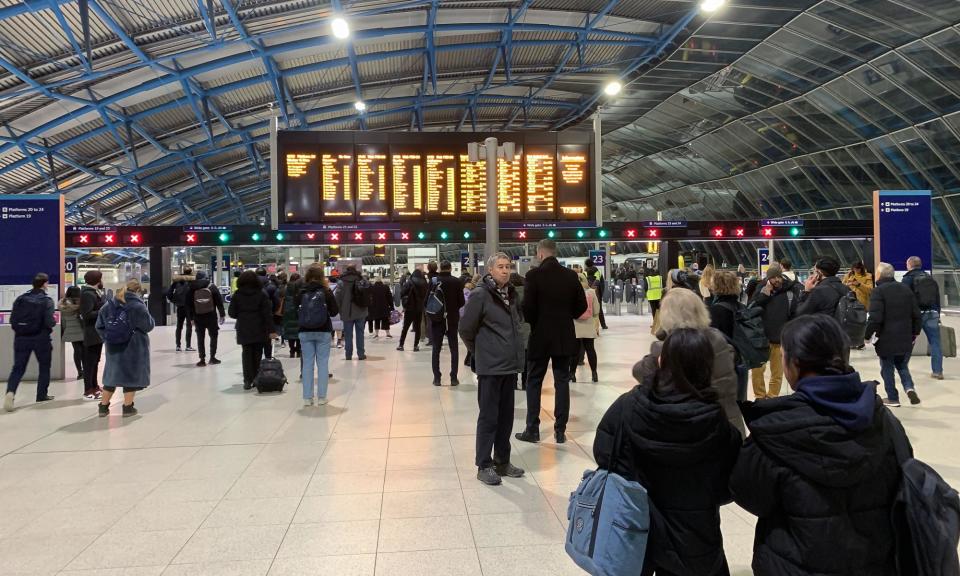Rail fare increase of 4.9% in England expected to exceed inflation

Rail fares in England will rise by 4.9% in March after the government capped the planned increase, although the cost of tickets is still expected to rise faster than inflation.
The government on Friday said it had decided to cap the fare increase for regulated fares, rather than choosing to increase the numbers in line with July’s retail prices index (RPI), as it has done in previous years.
In August, the government said it would not use the RPI reading of 9%, which would have locked in steep fare increases even as inflation slows in the rest of the economy. It also delayed the fare increase to 3 March. But Labour called the increase in fares a “brutal bumper rise”.
It is the second consecutive year that the government has chosen to ignore the RPI figure, which hit 12.3% at the equivalent point in 2022, because of disruption from the coronavirus pandemic and low interest rates.
Nevertheless, the March 2023 will represent a real-terms price increase if Bank of England forecasts of further declines in inflation prove correct. The most widely followed price measure, the consumer price index (CPI), showed inflation dropped to 3.9% in November.
The above-inflation increase for rail commuters comes after two years during which cost of living pressures have become a potent political issue. It also contrasts with a freeze on fuel duty paid on petrol for cars that has lasted more than a decade.
The government has argued that price rises are necessary to make up for reduced passenger numbers after the pandemic.
Mark Harper, the transport secretary, said: “Having met our target of halving inflation across the economy, this is a significant intervention by the government to cap the increase in rail fares below last year’s rise.
“Changed working patterns after the pandemic means that our railways are still losing money and require significant subsidies, so this rise strikes a balance to keep our railways running, while not overburdening passengers.”
The shadow transport secretary, Louise Haigh, said: “The Tories have just announced another brutal bumper rise in rail fares. With passengers facing record delays and cancellations and delays, this is an insult to millions.”
Scottish rail fares, which are set separately, will rise by 8.7% in April. The Scottish government argued that previous fare freezes were not sustainable. Welsh and Northern Irish fares are also set separately.
The RPI measure is widely seen by economists as a deeply flawed measure, and it generally sets a higher reading of price increases because of problems in how it measures housing costs.
However, the government has continued to use RPI in working out how much people pay, such as in rail fares and student loans calculations, while using the lower CPI when calculating how much people will receive, such as in pensions and benefits. That can benefit the government finances at the expense of individuals’ incomes.

 Yahoo Finance
Yahoo Finance 